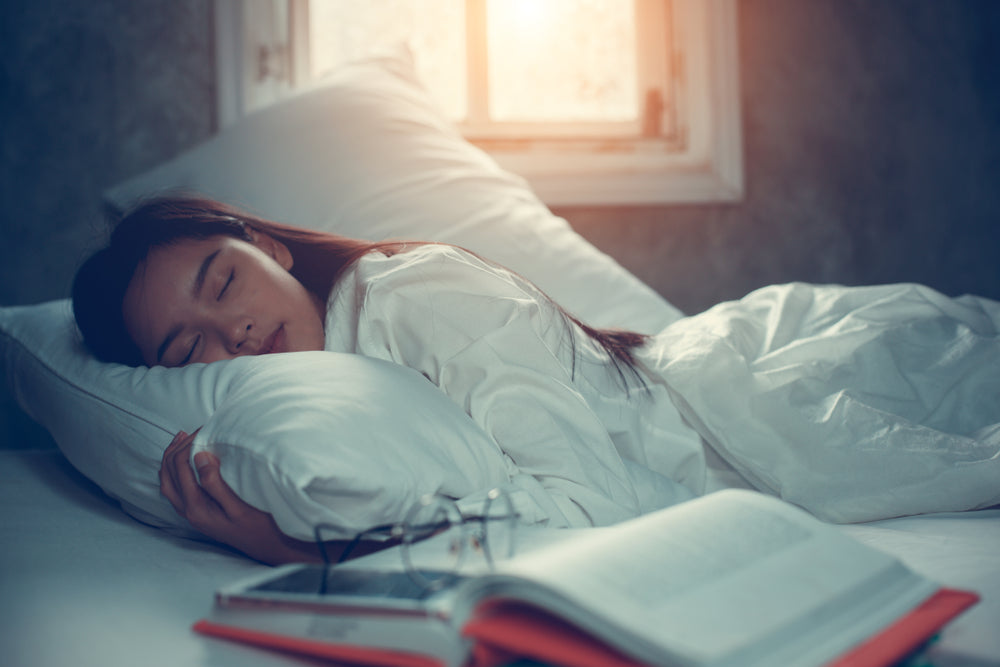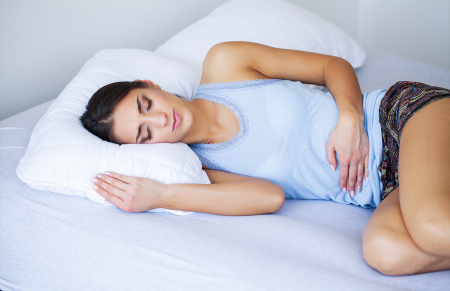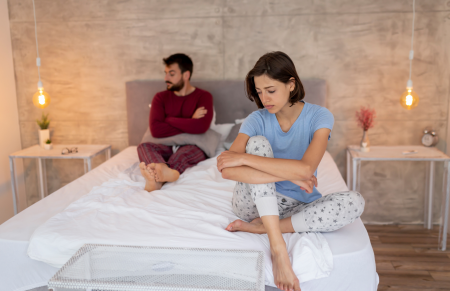They say teens should live life to the fullest, but it does not only entail hanging out with friends and taking chances—it’s about living your life in the healthiest way and getting adequate sleep daily.
During the teenage period, the body and brain undergo radical changes, including hormonal shifts and cognitive development, which affect emotions, family and social life, academics, and behavior.
Sleep is essential but usually overlooked by many teenagers. In fact, sleep deprivation among teens is considered an epidemic, which increases the risk of poor mental function, drowsy-driving incidents, depression, and anxiety. It can also negatively affect one’s ability to think, regulate their emotions, and learn.
With research studies showing that 60 to 70% of American teens have sleep problems, it has become imperative for us to understand different sleeping challenges to help teens and their parents make an actionable plan to combat sleep deprivation.
Why is sleep important for teenagers?
Sleep is not only important but an essential function for people of all ages. It allows the mind and body to recharge, leaving people alert, refreshed, and energized to start a new day. Likewise, it helps to keep one’s overall health in tip-top shape.
Without adequate sleep, the brain refuses to function properly, and the body will feel too weak for physical activities.
Sleep is also correlated with many bodily functions. For teens, quality sleep means profound physical, mental, emotional, and social development.
Physical health
Adequate sleep helps to boost the immune system, regulate hormones, and improve tissue and muscle recovery, helping assist the radical physical changes that happen during adolescence.
Mental health
Getting enough sleep helps promote better memory retention, expansive thinking, and brain function. Meaning, it sharpens critical thinking, which is a vital skill for helping teens understand school lessons and themselves better.
Sleep deprivation is also linked to mental health problems like depression, anxiety, and bipolar disorder. Therefore, improving sleep can help reduce the likelihood of having such mental health disorders.
Emotional health
Poor sleep can affect mood, leading to irritability and exaggerated reactions. The emotional consequences can be detrimental for teens who are adjusting to more responsibility and new social relationships.
Behavioral problems
Teens who get inadequate sleep are more likely to participate in high-risk behaviors, including drunk driving, riding a bicycle without a helmet, not using a seatbelt, risky sexual behavior, and drug and alcohol use. Behavioral concerns such as these can harm their academic performance and their relationships with family and peers.
How much sleep do teens need?
Adequate sleep among teens consists of 8 to 10 hours of sleep per night. However, many teens are still struggling to get enough hours of sleep. In a 2006 Sleep in America Poll conducted by the National Sleep Foundation, 45% of teens get less than eight hours of sleep per night. And it seems like sleep deprivation among teens gets worse over time. According to the Sleep Foundation, four surveys from 2007-2013 suggest that almost 69% of high school students only get seven or fewer hours of sleep every night.
What are the struggles teens face when getting better sleep?
Many factors prevent early bedtime. However, keep in mind that factors may differ from teenager to teenager.
Late sleeping hours
Teens are more inclined to be “night owls,” staying up later at night to keep up with the unrelenting school, house, and social demands. With so much on their plate, many teens try to make time for everything except sleep.
Use of gadgets
In the modern age, electronic devices are almost impossible to detach from teens. Prolonged screen time can contribute to sleeping problems and incoming notifications can disrupt sleep.
Sleep disorders
Some teens suffer from sleep problems like obstructive sleep apnea (OSA) and Restless Leg Syndrome (RLS), both of which cause fragmented night sleep.
Mental health conditions
Mental health disorders such as depression and anxiety can be a significant roadblock to quality sleep.
Tips to get better sleep for teenagers
Teens who experience sleep problems should consult with their doctor about their sleeping patterns so they can work to identify underlying causes and craft an effective treatment.
On the other hand, these tips can be beneficial for teens:
- Keeping a strict 8-hour schedule on weekdays and weekends.
- Creating a consistent pre-sleep routine that helps boost relaxation
- Avoiding drinking caffeine-laden drinks
- Restricting the use electronic devices 30 minutes before bedtime
- Sleeping on a supportive, warm mattress and pillows

Get the best sleep
As a parent, you can help support your teen’s sleep by providing more comfort and warmth in the form of warm mattresses. Check out Navien Mate’s heated mattress pads to increase your teen’s comfort and better chances of getting quality sleep throughout the night.
Resources:
https://www.sleepfoundation.org/teens-and-sleep
https://med.stanford.edu/news/all-news/2015/10/among-teens-sleep-deprivation-an-epidemic.html
https://childmind.org/article/happens-teenagers-dont-get-enough-sleep/
https://www.risepreneur.com/living-your-teen-life-to-the-fullest-with-no-regrets/








